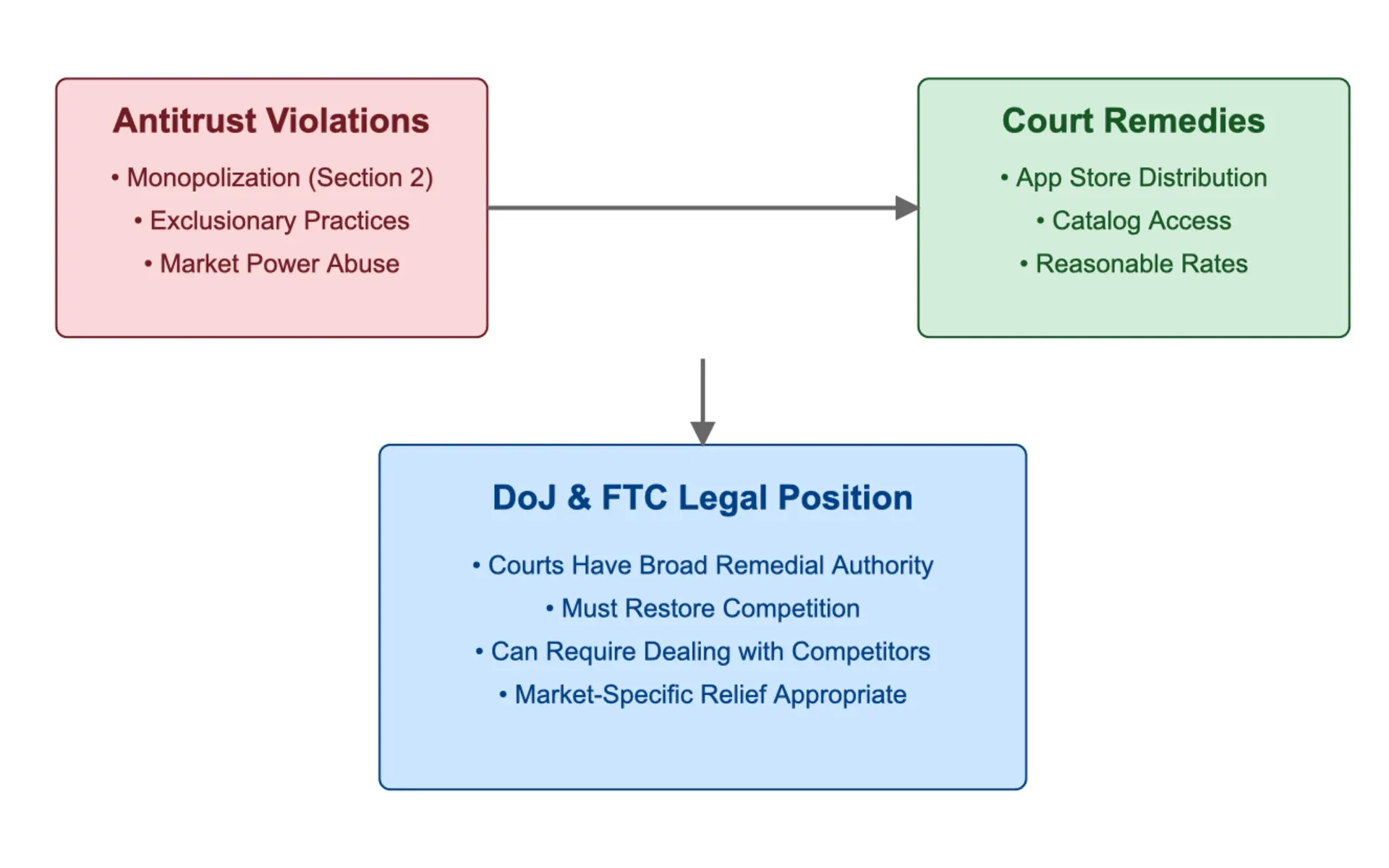Department of Justice opposes Google's remedies arguments in Epic antitrust case
DoJ and FTC file amicus brief rejecting Google's claims that court-ordered app store remedies in Epic case exceed legal authority.

On January 7, 2025, the U.S. Department of Justice and Federal Trade Commission filed an amicus brief supporting Epic Games' antitrust victory over Google, rejecting Google's arguments that the court-ordered remedies go beyond its legal authority.
According to the 38-page brief, Google incorrectly claimed that the district court exceeded its power by requiring Google to distribute third-party app stores through its Play Store and allow those stores access to Google's app catalog. The filing states that these remedies fall within courts' "broad authority" to address monopolistic conduct.
The antitrust enforcers explained that Google misinterpreted key Supreme Court precedents, particularly the 2004 Trinko decision, which addressed when refusal to deal with rivals creates antitrust liability rather than limiting available remedies after a violation is found. "Trinko addresses the narrow circumstances in which liability for a unilateral refusal to deal with rivals violates Section 2. The case does not address the available remedies for monopolization," the brief states.
In evaluating the district court's app store distribution and catalog access requirements, the agencies noted that Google's conduct created substantial barriers through network effects that entrenched its monopoly power. They argued the court reasonably determined these specific remedies were needed to restore competition.
The brief systematically dismantled Google's legal arguments, noting that courts have long held they can require monopolists to provide goods or services at reasonable rates to ensure effective relief. It cited cases involving patent licensing, sports arena access, and other contexts where such requirements were upheld.
The Department of Justice, which has ongoing antitrust litigation against Google in other courts regarding search and digital advertising, argued that Google's core claims, if accepted, "could prevent district courts from devising effective remedies for monopolization in this case and others."
The filing emphasized that antitrust remedies must "terminate the illegal monopoly, deny to the defendant the fruits of its statutory violation, and ensure that there remain no practices likely to result in monopolization in the future," quoting established precedent. The agencies noted that Google's preferred narrow view would undermine these crucial objectives.
Notably, the antitrust enforcers rejected Google's novel argument that it could justify competitive harm in one market by pointing to benefits in another market. The filing stated that the Sherman Act, like the Clayton Act, prohibits monopolization "in any part" of commerce, making such cross-market defenses legally invalid.
The Department of Justice and FTC declared that Google "misstates rules of antitrust liability" and asked the appeals court to reject arguments that would improperly constrain remedial authority and misapply market definition principles. They emphasized that courts retain "large discretion" to craft effective relief after finding antitrust violations.
The case stems from Epic Games' lawsuit alleging Google monopolized Android app distribution and in-app billing through an array of exclusionary practices. In December 2023, a jury found that Google violated antitrust laws. The district court then imposed injunctive relief requiring changes to Google's app store practices.

The antitrust enforcers' emphatic rejection of Google's legal theories signals the importance they place on preserving courts' remedial powers to address monopolistic conduct in digital markets. Their analysis focused heavily on precedent while addressing the distinctive features of app distribution that require forward-looking remedies to restore competition effectively.


